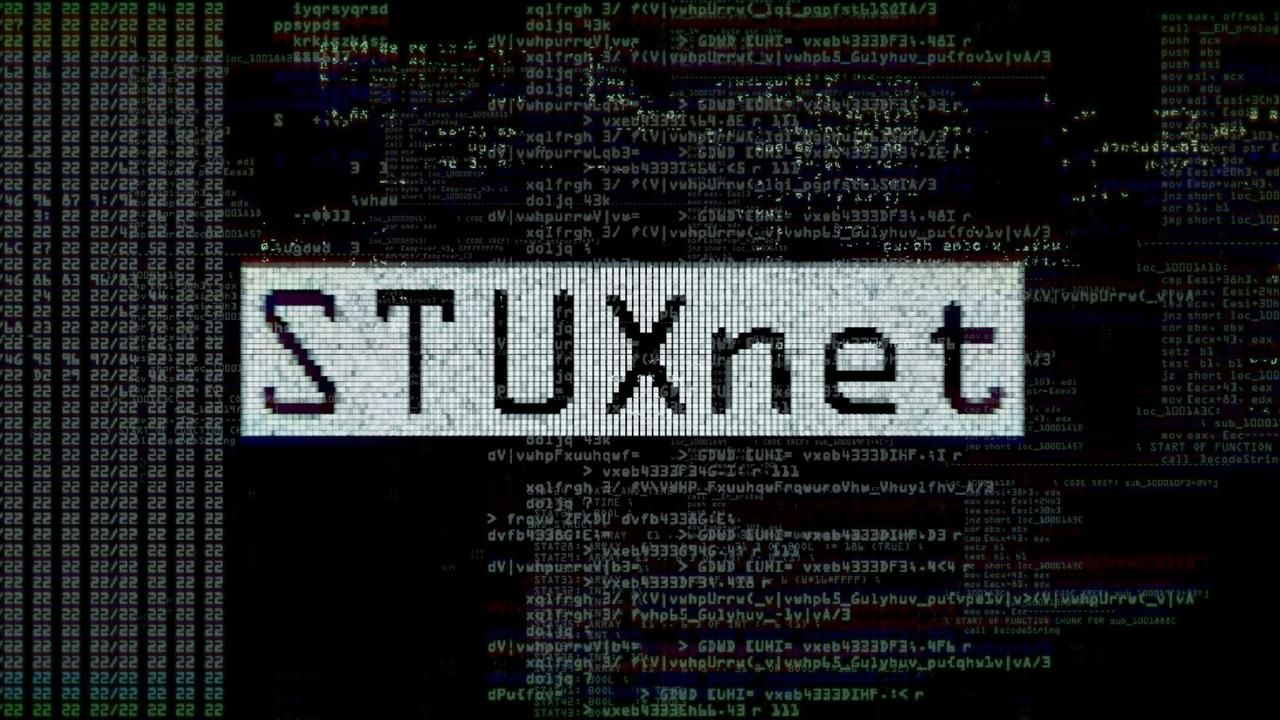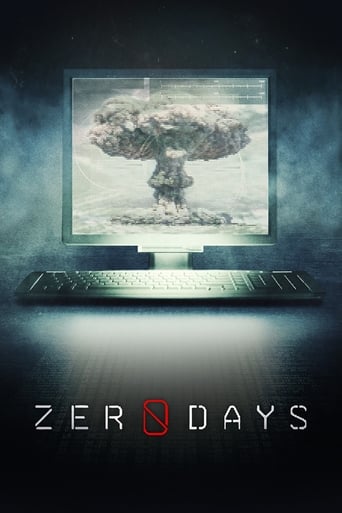

This Movie Can Only Be Described With One Word.
... View MoreI have absolutely never seen anything like this movie before. You have to see this movie.
... View MoreThis is a gorgeous movie made by a gorgeous spirit.
... View MoreThe acting in this movie is really good.
... View MoreOnce you go beyond the automatic dislike of computer screen hexadecimals turning into beautiful 3D animations, which is the norm in all popularizing documentaries, you can see not only how interesting the story is and how well the film is done, but how much effort came into the gathering of the information in it.This two hour film describes how Stuxnet changed the world, first from the eyes of malware researchers and how they discovered the worm and how they started to analyze it and realize how advanced it is and what it does, then goes into the political realm, describing how the US and Israel did this to Iran, then narrows down, showing not only how this was something the US did to prevent the Israelis to do even worse things, but how Stuxnet came back to bite its creators in the ass. In the end we are shown the true reality of a world in which anyone can do horrible damage with no attribution while the security institutions keep everything secret and out of public discussion and decision.A very informative movie, filled with useful tidbits, showing the story of Stuxnet from start to end and to later consequences, interesting to both technical people and laymen alike. Well done!
... View More"Zero Days" conveys two messages. The broader one, though hardly new, bears repeating and applies as much to advances in medical science as to war. In a hypercompetitive world, it asks, when do we decide not to pursue innovation and hold back for the greater good? Has technology outrun our capacity to control it?
... View MoreI would like to say, so it answers a few of you that posted here, I am NOT an IT person nor do I know much about pcs other than the average stuff.I was captivated throughout this movie, loved the little surprise at the end with the NSA "agent". I didn't know about this attack, if i did hear about it back then, it went right over my head so I am happy to have seen this movie and will get to bed a little less naive tonight. Totally enjoyed that it tried to include many facets of this story, from politicians to actual cia/nsa and other agencies, in 3 countries. Opens a debate about future policies, shows how relatively easy it is to tear down a country(not fiction anymore like too many still think) and more. Someone suggested that the politics don't have room in this story LOL, how stupid a comment, this story is all about the politics behind it.I liked it also 'cause it shows how the US Gov, interferes with other nations and then complains when it bites them in the ass down the line. a story within a much bigger story, hence why I think this movie or story would not be of much interest if we didn't see the politics that created it. The tech stuff is easy to understand even for someone like me that is no more than an avg joe, last time I understood computer language was on my commodore-64 back in the early 80's(basic).I think this movie will please many people for diff reasons. I wish all the Obama/Hillary lovers I read on FB posts would watch this movie and be better informed with their comments :o) Reasons why I really liked this movie: I love real life stories almost every time. I like conspiracy theory stories, I like when the US gov is shown for what it truly is(not often enough), Not sure what is the x-factor but there was one for me watching this movie, I was captivated from beginning to end, Kudos to all involved in the making of this film/documentary. Was made in a way I had not seen before, can't quite put my finger on it though.
... View MoreThis film details Stuxnet as a phenomenon. It does a good job in deliberating about its ramifications and the situations that fomented it. Although the claims it makes cannot truly be verified, it does give you the general idea about the alleged attack. I would say there was a political angle to the telling of the tale, but the movie drives home the point that Stuxnet was the primer to the era of cyber warfare of this century. We get to see the dramatization of the 'predicament' of the Bush administration, the sepia tinted Ahmadinejad speeches (which should have been subtitled in English, but were not), and the fictional NSA agent who tells us the role Israel and the US supposedly played in the story. In the end it tries to give out a moral message that all war is bad, more weapons just mean more calamities waiting in the wings, and secrecy around a weapon is the first step to let it run amok.Overall, it was an informative and a slightly political documentary. Definitely worth a watch.
... View More